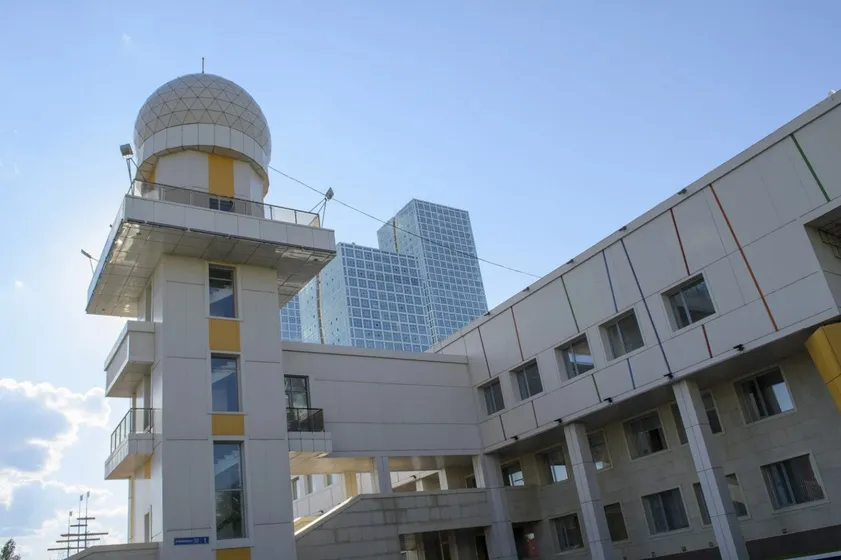Attending extracurricular activities is an effective way to foster creativity in children and help them find their passion or even choose their future careers. Recognizing this importance and the population growth, Kazakhstan heavily supports building new schoolchildren’s palaces — educational institutions that offer a wide range of activities and classes. These include arts and crafts, music, dance, sports, science, technology, and other cultural and educational pursuits, all under one roof.
As an example, the population in Astana reached over 1.43 million people in 2024, according to the National Bureau of Statistics. Hence, the authorities of the Kazakh capital are solving two strategic issues — building more schools, and children’s palaces to supply current and future students with places to nurture their creativity and develop new skills.
"Every city and district needs to have such centers. [...]It is necessary for children, for the younger generation. Therefore, solving this issue should be a priority,"
QazMonitor learned when and where the capital will see more schoolchildren’s palaces, and found one fascinating success story proving the impact of the institution.
New Palaces in Astana
It is planned to build 15 Schoolchildren's Palaces in Astana until 2029. The first stage is to start the construction of five palaces in 2024. Last year, the press service of the city administration shared that they will be located in five districts of the city.
Five new schoolchildren's palaces will be located at the following addresses:
Saryarka district, the intersection of Akan Seri and C-189 (Zemlyanichnaya) streets;
Almaty district, the intersection of Tulebayev and Burabai streets;
Baikonyr district, the intersection of Taiburyl and Igilik streets;
Yesil district, the intersection of Turkistan and Bukhar Zhyrau streets;
Nura district, the intersection of Aitmatov and Mukhamedkhanov streets.
Now, Astana has three such centers: Al-Farabi Palace, Utemisov Palace, and a private Palace of Schoolchildren — SANA center, which opened last September.
Lasting impact
What makes children’s palaces unique is the ease of trying out new courses if you attend just one of them. Surrounded by fellow students rushing to their sections, attendees often take on more than one course. Even if their interest in certain activities fades, school students usually find something engaging, attend that section for years, and continue nurturing that interest as adults (this article’s author included).
If you want a standout example of such a lasting impact, check out QazMonitor's interview with Polina Tyrina, better known to the public by her stage name Polina Hanym. The Bossa Nova singer started her journey as a guitar student at the capital’s palace named after Makhambet Otemisuly, attending the class of Tagir Aitbaginov. What started as learning bard songs with fellow music fans turned into a prolific career and a unique stage persona. It is just an example, yet there is a high chance that your favorite Kazakh creator went to a palace in their hometown when they were young.










